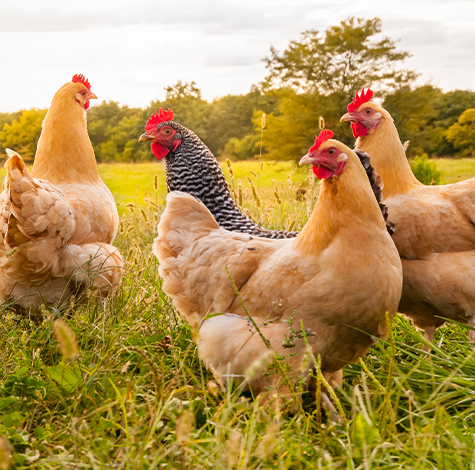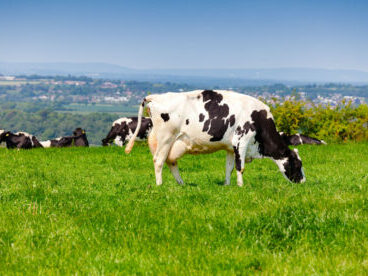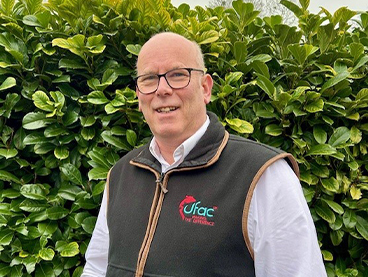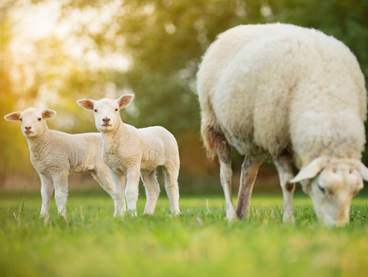Reduce your carbon footprint with UFAC’s new supplement, cholymet, created as the precursor to eradicating soya bean meal in ruminant animal feed.
There have long been concerns with the efficiency and sustainability of dairy farming and its impact on the environment. UFAC’s latest supplement, cholymet, was developed to address the environmental concerns associated with the widespread use of soya bean meal in animal feeds.
Soya bean meal is typically used in food and animal feeds as a protein source due to its favourable amino acid profile. However, soya production is heavily debated within the agricultural industry due to its association with substantial carbon emissions and environmental footprint.
While many assume that soya is mainly used for human consumption and an alternative to dairy or meat-based products, according to the World Wide Fund for Nature (WWF), almost 80% of the world’s soya bean crop is used in the production of feed for livestock.
cholymet was developed to address the need for more sustainable practices and offers a solution to reduce the amount of soya bean meal fed to dairy cows without losing farm performance and profitability.
What is cholymet?
cholymet is a finely granulated, easily pourable rumen-inert supplement for dairy cows. It serves as a crucial addition to the diet of dairy cows by offering essential amino acids and vitamins for herd health and productivity.
Currently, many farmers rely on soya bean meal for their animal feed. This is due to its rich protein content and vital amino acids. cholymet offers an innovative solution that can eventually reduce our dependence on soya bean meal in ruminant animal feed.
cholymet contains a blend of important nutrients, including choline, lysine, methionine, and glycerine. These components are carefully encapsulated to ensure the efficient delivery of essential nutrients to the lower gut of cows, especially during transition and early lactation periods when high milk production is crucial.
The key to choloymet’s success is understanding how choline interacts with methionine within the feed. This interaction plays a pivotal role in various metabolic functions that directly influence the health and productivity of dairy cows.
Sustainability credentials
As a result of an on-farm trial, it was found that by feeding cows cholymet, farmers can reduce their milk carbon footprint by 11%.
cholymet can fine-tune the protein levels in your cow’s diet through amino acid balancing and precise feeding. This enhances the efficiency of nitrogen utilisation and reduces nitrogen emissions. The UK has a lower nitrogen utilisation rate in milk production compared to countries like Germany, the Netherlands, Italy and the United States.
Incorporating cholymet into the cow’s diet can improve nitrogen utilisation and reduce nitrous oxide emissions. This, in turn, enhances feed conversion efficiency (FCE) and lowers overall feed costs. The end result is an overall increase in milk volume and solids, leading to a higher return on investment.
By including cholymet in your cow’s diet, you’re not only providing a valuable amino acid balancer but also taking a significant step towards reducing the reliance on soya bean meal in your animal feed. This innovative supplement has the potential to transform the way dairy cows are nourished, ensuring better health, higher milk production, and improved overall farm sustainability.
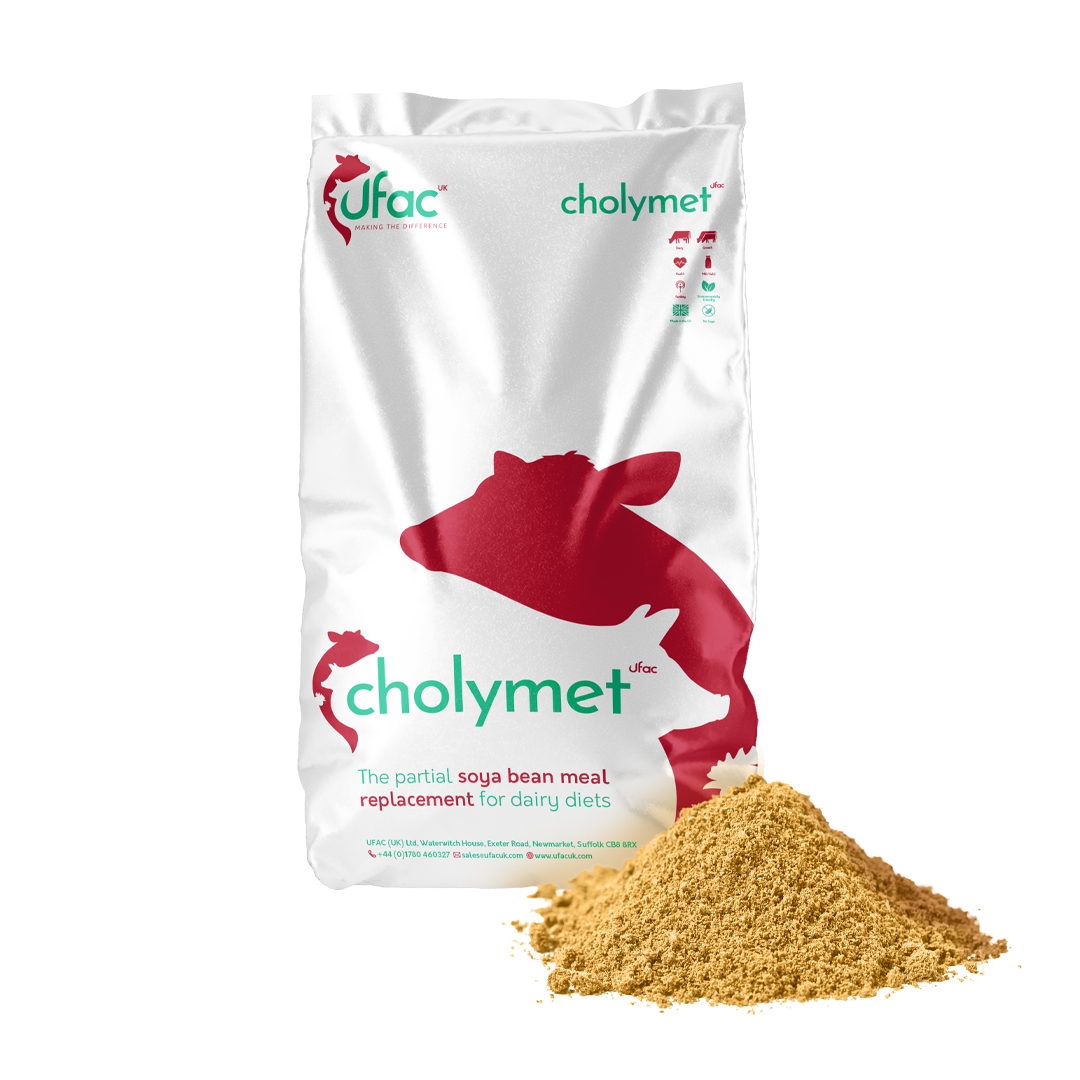
The Commercial Farm Trial
A commercial farm study was designed and carried out in a controlled environment on a commercial herd of 190 high-yielding cows in the East Midlands, UK. The cows were fed the supplement from 21 days pre-calving to 50 days post-calving, and the results were taken from cows 7-100 days in milk.
In the study, 33% of the soya bean meal in the Total Mixed ration (TMR) was replaced with a supplement of rumen-inert essential amino acids, choline and prairie meal (to maintain the ME content.) This reduced the Total Crude Protein content of the feed by 1%.
Trial results
As a result, cholymet was found to increase milk yield, butterfat production, and milk protein and improve F.C.E %. The trial showed that the use of cholymet in the feed did not affect methane but was found to lower the carbon footprint of the feed overall and return on investment.
The trial revealed that the supplementation of dairy cows rations with rumen-inert balanced amino acids and choline increased milk production by 2.4 to 3.0 litres per day and 6.3 ROI, as well as a partial replacement of soya.
As a result of the trial, it was found that by feeding cows cholymet, farmers can reduce their milk carbon footprint by 11% and soya bean meal fed to dairy cows by 33%. This value to the production sector alone is more than £85m. The benefit to the milk supply chain and the environment is that milk is produced using significantly less soya bean meal and emitting fewer GHGs.
The financial benefit to UK dairy producers of partly replacing soya bean meal with the tested amino acid balancer with choline and prairie meal, based on extra milk yield at £0.37/l, is £0.73p per cow per day. This represents a 1.66:1 Return on Investment.
The potential combined benefit of the two supplements, envirolac and cholymet, to replace palm oil and partially replace soya bean meal in dairy rations is over £145/cow/year to dairy farmers from the increased output.
cholymet and envirolac
UFAC presents an innovative solution to address the pressing environmental sustainability challenges the UK Dairy Industry faces. Our commitment to sustainability is embodied in our two latest products: cholymet and envirolac.
envirolac is a palm-free fat supplement that has been scientifically proven to enhance both milk yields and quality whilst significantly lowering your farm’s carbon footprint. cholymet is a precursor to reducing soya bean meal in dairy cow diets. Incorporating cholymet into your feeding regimen contributes to a more sustainable approach to dairy farming.
Together, these two supplements represent a shift in how we formulate dairy rations. Their goal is clear: to increase milk production efficiency and simultaneously reduce the environmental impact of dairy farming.
Interested in learning more cholymet? Contact our Regional Business Managers directly.
Mark Townsend
M: 07788 294 539
South West and Wales
Richard Lapthorne
M: 07788 963 487
North England and Scotland
James Hastings-Molyneux
M: 07538 763 832
South East and Midlands


 Back to News
Back to News 